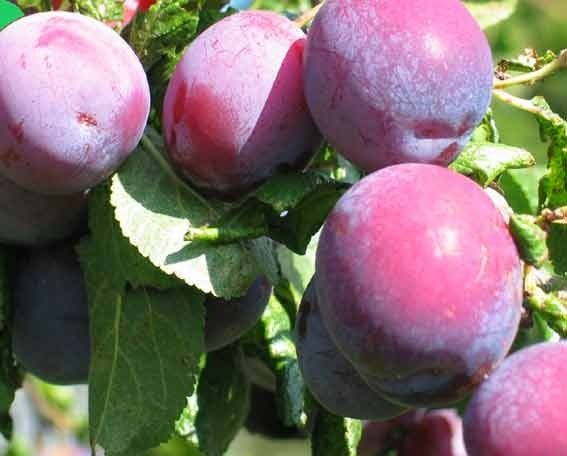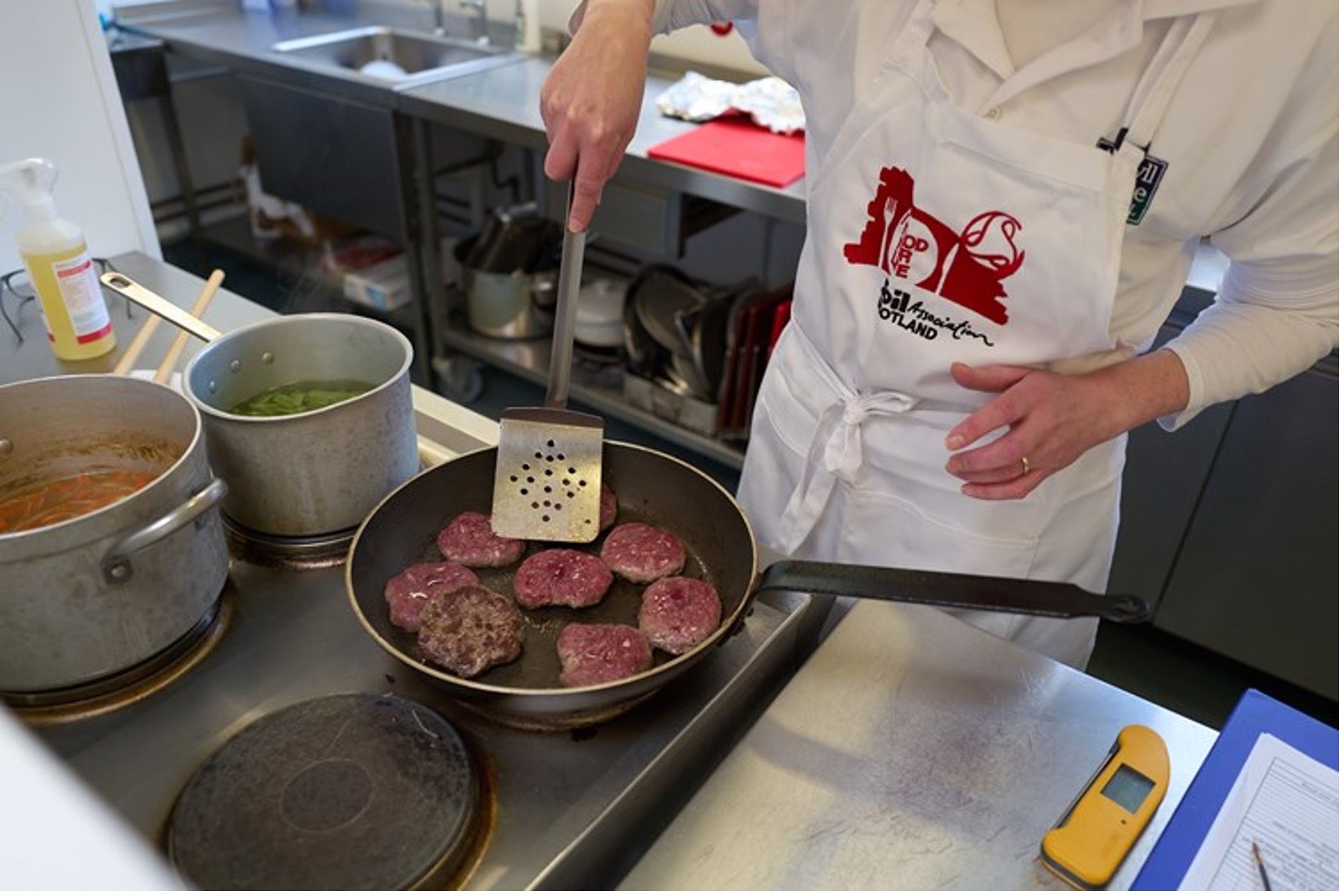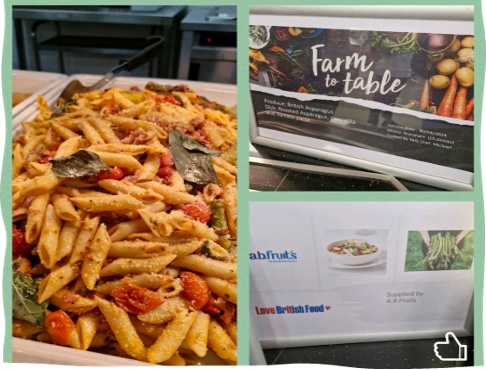Celebrate British Food Fortnight with a Plum
Emily Arbuthnott
Plums are traditionally the last fruit of summer and the first fruit of autumn.
Referred to in the writings of Chaucer, they are a truly British fruit not least because they nurture the nation's idiosyncratic nature. Every early September they are like the long-lost friend that comes to visit. They are either greeted with utter relish and devoured on the spot or treated with an initial disdain, then later consumed in the guise of a jam, chutney or a form of baked pudding. Plums can also tend to outstay their welcome, once a good harvest has been utilised in every known form.
Referred to in the writings of Chaucer, they are a truly British fruit not least because they nurture the nation's idiosyncratic nature. Every early September they are like the long-lost friend that comes to visit. They are either greeted with utter relish and devoured on the spot or treated with an initial disdain, then later consumed in the guise of a jam, chutney or a form of baked pudding. Plums can also tend to outstay their welcome, once a good harvest has been utilised in every known form.

Plums are traditionally the last fruit of summer and the first fruit of autumn. Referred to in the writings of Chaucer, they are a truly British fruit not least because they nurture the nation's idiosyncratic nature. Every early September they are like the long-lost friend that comes to visit. They are either greeted with utter relish and devoured on the spot or treated with an initial disdain, then later consumed in the guise of a jam, chutney or a form of baked pudding. Plums can also tend to outstay their welcome, once a good harvest has been utilised in every known form.
The brilliant thing about plums is, rather like beetroot, it doesn't matter if you are not a fan of the raw product. Incorporated in a cobbler or served alongside duck the taste is far more subtle. Rich and tangy, without the sharpness of the raw deal. The drawback is that you either can't seem to find a British plum anywhere or you are overwhelmed by them.
Unfortunately, due to imported produce having a higher profit margin, many supermarkets tend to sell Californian Santa Rosa plums or something similar. If you are having difficulty finding British plums try your nearest pick your own or farmers markets. If you are fortunate enough to live near Burnham Market then go to Leith House Orchards www.pmfarming.co.uk. They have 3,000 plum trees and 36 varieties, including rarities with serial numbers not names because they never made it into commercial production, where you can pick-your-own. Foraging is another option. Carefully scoured hedgerows, particularly in North Wales can often yield wild plums. The wild plum tree is very similar to the blackthorn, about 6 meteres high with dark oval leaves. The fruit are usually ripe by the end of September. Wild plums are dark purple with juicy, green flesh. Of course the easiest, most cost efficient and environmentally friendly way of obtaining British plums is to grow your own. Varieties such as Marjorie's Seedling and Victoria are easy to grow and will have you deep set in plums for years to come. As with all fruit, it's better to buy trees from a specialist nursery, such as Brogdale Farm in Kent, home of the National Fruit Collection. You will be amazed, in a good year, how many plums your tree will yield. You will then wonder, as any scrap of space diminishes from your freezer, what you are going to do with them all.
Comfort yourself by knowing generations of ancestors have faced similar conundrums and they did not have fridges or freezers. Plums are just as good a component of savoury dishes as they are of sweet ones.
A plum sauce can enhance the flavours of pork, poultry and game dishes. Duck or partridge with spiced plums is a delicious autumnal supper. Similarly a plum salsa is fantastic with mackerel or herring. For vegetarians, a plum and brie tart is easy to make. In fact plums sit very well with cheese be they in pastry, as a jacket potato filling or simply on a cheese board. How about a plum chutney and cheese sandwich? Plum preserves are a great way to galvinise a glut. Plum jam is utterly divine be it on a thick wedge of fresh bread or on toast. It also makes a wonderful present. And 'Pershore' plums make excellent jam or chutney.
Share:
You may also be interested in...

A new commitment to British food and farming was unveiled at the University of Warwick today as the Love British Food Pledge made its debut at the prestigious TUCO Competitions Event. Co-created by Tim Radcliffe , NHS England and Alexia Robinson , Founder of Love British Food, the initiative calls on industry leaders, influencers, and media to publicly pledge their support for homegrown food and farming. At the heart of the launch is a Pledge Board , inviting attendees to physically sign their commitment to the principles of the Pledge. The Pledge outlines core commitments: We, the undersigned, proudly commit to supporting and promoting British food and farming. Together, we pledge to: Champion British Produce - Prioritise the sourcing, supply, and promotion of British-grown and British-made food wherever possible. - Highlight the quality, sustainability, and heritage of British produce in all aspects of our work. Support British Farmers, Producers and Manufacturers - Build strong, fair, and transparent relationships with British farmers, growers, producers and manufacturers. - Encourage investment in British agriculture by promoting its importance to local economies and communities. Promote Sustainability and Seasonality - Advocate for sustainable farming and production practices that protect our countryside and environment. - Celebrate the seasonality of British food, reducing food miles and minimising waste Inspire Consumers to Choose British - Educate and inspire customers and communities about the benefits of choosing British food. - Create opportunities to showcase the diversity and excellence of British food and drink through menus, events, and campaigns. Work Together for a Stronger Future - Collaborate with like-minded organisations and businesses to strengthen British food’s presence locally and globally. - Advocate for policies that support the growth and success of British agriculture and food production. - By signing this pledge, we affirm our commitment to the values of Love British Food, to ensure a thriving future for British food, farming, and communities. Love British Food’s Alexia Robinson commented: “British food is the backbone of our nation’s health, economy, and identity. This Pledge gives people across our industry a powerful way to show their support and drive real change in sourcing, sustainability and education,” NHS England’s Tim Radcliffe added: “We believe this initiative will energise the sector and create a ripple effect - encouraging public services, retailers, and the wider food industry to source British and support our farmers.” Graeme Collie, TUCO concluded: “We were delighted to launch the Love British Food Pledge at the TUCO Competitions event today and I'm sure the TUCO members will continue to support the Pledge this year. Many TUCO members were keen to commit to the pledge and show their support to British food and farming.” Following its launch at TUCO, the Love British Food Pledge will feature at major sector events throughout the year, including the LACA Main Event in July, as well as the NACC and HCA annual events. This campaign comes at a pivotal time for British food production, as consumers and caterers alike demand greater transparency, sustainability, and local provenance in their food choices.

Background NHS Greater Glasgow & Clyde (NHSGGC) is the largest Health Board in Scotland, providing a catering service for approximately 6,000 patients each day across 4 sectors covering 16 hospital sites. These range from small outlying units to the Queen Elizabeth University Hospital Campus, the largest Critical Care complex and Emergency Department in Europe.

Yeovil District Hospital (YDH) are committed to improving the care experience for their patients, staff, and visitors. They have an innovative approach to improving meal provision, with a special focus on tackling malnutrition and dehydration, streamlining meal delivery, and enhancing both the patient and customer experience. Through strategic improvements in menu design, waste management, and patient-centric service, the hospital catering team has successfully met the challenge of providing nutritious, appealing meals that cater to the diverse needs of the hospital community. As part of their commitment to sustainability, a comprehensive waste reduction initiative that targets food waste at all stages of meal provision—from kitchen preparation to patient plated and unserved meals was introduced. By partnering with food service providers and leveraging technology, they implemented real-time waste tracking, allowing them to identify inefficiencies and reduce unnecessary food wastage. Additionally, they transitioned to biodegradable, recyclable meal packaging, reducing their carbon footprint and contributing to the hospital’s broader environmental goals. The Catering team have come a long way in recent years, demonstrating fantastic improvement for not only patients, staff but also visitors, with many changes including waste, improving service levels and patient/customer experiences. The in-house service has seven chefs at working YDH included in the team of over 40 staff, the Catering department has grown in recent years with the influence from new management with Catering and Hospitality background. The use of local and seasonal provisions are used to write menus for both patients, staff and visitors, has not only reduced costs but also reduced Caterings carbon footprint & sustainability in food, the catering team work closely with suppliers in the KPI monthly meetings to talk about seasonal provisions Regular monthly meets between the Catering and the Dietitians was implemented back in 2018 and has paid dividends, with both departments working closer together for patient nutrition and hydration, the chefs work with the dietitians on menus to make sure there is a well-balanced menu (remember food is medicine) the newly appointed Catering Liaison Officer (CLO) in 2023 is the link between the Catering and Dietitians but also the patients. The CLO carries out weekly surveys from staff and visitors, including speaking directly with the patients on the wards, this has allowed the Catering team to make changes by listening to the feedback, it gives the team a better understanding of what is and isn’t liked from the most popular meals to the not so popular meals and what sides of vegetables go with what main courses, this also helps with portion sizes and waste, there is also a suggestion box in the staff canteen as well as QR codes for feedback. Menus at YDH are written 8 days in advance by the chefs, with the use of seasonal provisions, using local British ingredients from local suppliers. The chefs working closely with the Dietitians in the monthly meetings, write varied well-balanced menus, dried herbs are banned in the kitchen with the chefs having their own herb garden outside in the seating area. The patient-centric strategy focuses on creating the environment where the needs, preferences, and experiences of patients are at the heart of every decision made. This approach improves outcomes, enhances patient satisfaction, and drives better care delivery, the team commitment is consistently communicated of the importance of a patient-centred approach which will keep improving patient outcomes and experiences. The Catering team have regular training sessions, encouraging staff to take an active role in enhancing the patient experience by providing them the tools and autonomy to solve patient issues quickly and effectively, by phone or in person. Part of the Catering Liaison’s Officers role is to work with not only dietitians but clinical staff, working together on patients care plans, which includes their nutrition and hydration. A newly refurbished staff canteen called the Breeze Café offers a clean, quiet, and accessible facilities including a garden (in the summer) for staff, visitors and patients to visit and enjoy the talented chefs’ delights, from the Deli-bar to Asian Thursday and a fantastic carvery with three meats and proper homemade gravy every Wednesday and Sunday is a must try. Focusing on mealtimes, the Catering team work closely with the Housekeepers who serve the food at ward level ensuring the service of meal times run as smooth as possible, with late meals being delivered for any patient outside of lunch or supper times, digital meal time ordering as close to meal times not only ensures the patient gets what they ordered, it has helped reduce food waste and efficiency. The development of a QR code system where patients can look at the coming weeks menu, with pictures and nutritional information will be rolled out for 2025.

Love British Food is delighted to announce that its unique podcast series has been shortlisted for the prestigious Marketing Award at the 2025 Public Sector Catering Awards, marking a significant recognition just one year after its launch. Led by Derek Wright, Director of Love British Food and Head of Catering at Blackpool Local Authority, and expertly edited by Georgina Wright, the podcast has quickly gained recognition for tackling some of the most pressing and complex issues in the UK food supply chain. Since its debut, the Love British Food podcast has featured engaging and thought-provoking conversations with voices from across the sector, including caterers, farmers, chefs, procurement leads, educators and public sector leaders. Episodes have explored everything from sustainability and supply chain resilience to the challenges of delivering nutritious British food in schools and hospitals. Each episode concludes with a popular seasonal food feature led by Ben Bartlett, Director of Love British Food and Director of Master Chefs GB, highlighting the importance and versatility of local seasonal British ingredients. Episodes start with an update from our resident farmer, Sam Mallinson who is a 3rd generation arable farmer from Lancashire. Sam shares monthly updates about his family farm in Lancashire. Commenting on the news, Alexia Robinson, Founder of Love British Food, said: “This shortlisting is a fantastic achievement and a real testament to the energy, honesty and passion that goes into every episode. Huge congratulations to Derek and Georgina, our Farmer-in-Residence Sam, and of course Ben Bartlett for creating something truly original. These podcasts are the first to really cover the full farm-to-fork journey, through insightful conversations with the people who keep our food system going. We’re proud to be giving them a platform.” The awards ceremony will take place on Thursday 24th April at the Hilton London Metropole, where winners will be revealed in a celebration of excellence across the public sector catering landscape. Podcast links: https://www.lovebritishfood.co.uk/podcasts

On a crisp morning in the heart of Argyll and Bute, the small community schools on Islay and Jura are buzzing with excitement. In the lunch hall of Small Isles Primary, a group of children eagerly line up to try something new - a plate of wild venison meatballs, freshly prepared and sourced from the very hills surrounding their homes. This is not just another school meal - this is the future of sustainable, locally sourced food in action. The groundbreaking pilot project, launched in partnership with Argyll and Bute Council, Wild Jura, and Food for Life Scotland, aims to bring the rich flavours of Scotland’s wild larder to school children while promoting sustainability and supporting the local economy.

Our Prime Minister Keir Starmer was quoted in an interview last week by saying voters must choose between a 'tax break' for farmers or tackle the NHS backlogs. How about our government invests in farming and start to revolutionise the food system to produce highly nutritious food in more accessible places and affordable avenues to ultimately reduce the consumption of ultra processed foods and to deduct revenue and profit from the large corporations who are contributing to the current obesity and mental health crisis? Surely the corporate fat cats are morally and directly responsible for the heavy burden upon our NHS? Jenny Jefferies explores further the widening gap between farmer and consumer for Love British Food…

Love British Food and No Farmers, No Food are delighted to announce a partnership dedicated to promoting British farmers. Together, they will champion initiatives to ensure British food is the primary choice in public institutions and push for fair supermarket pricing that reflects the true value of our farmers' hard work.










